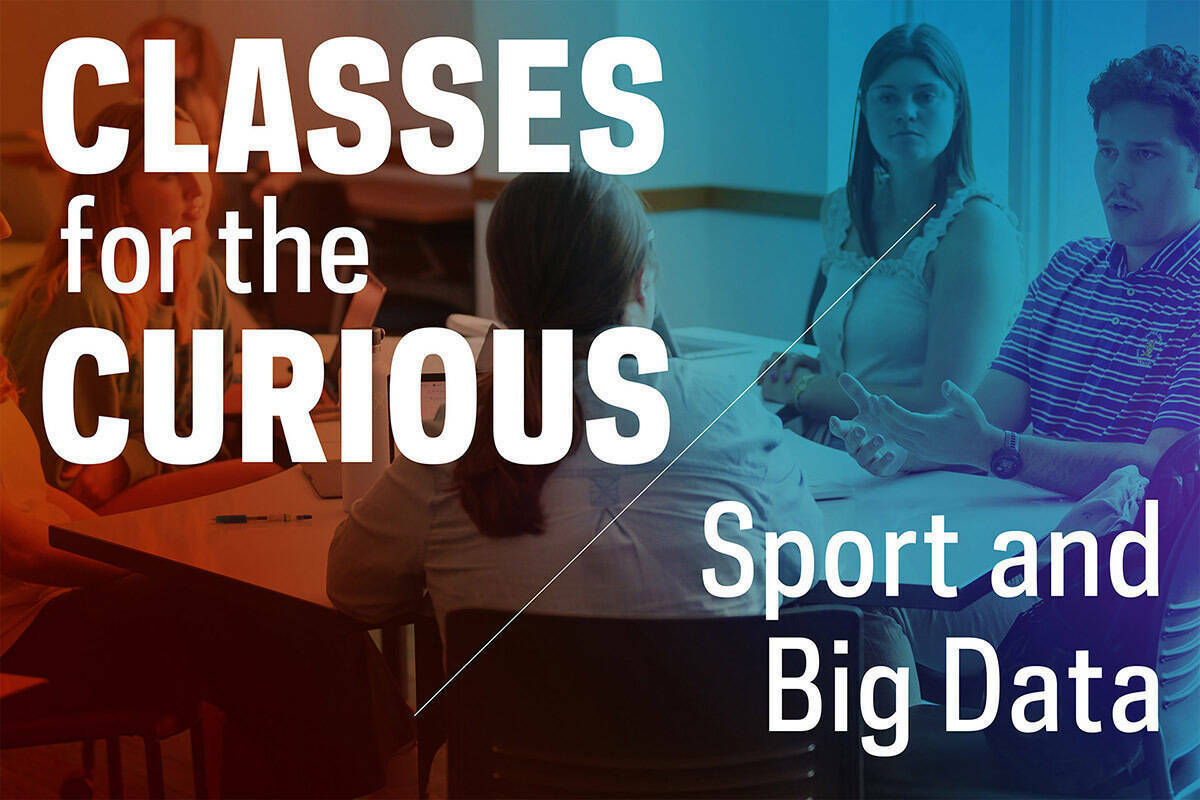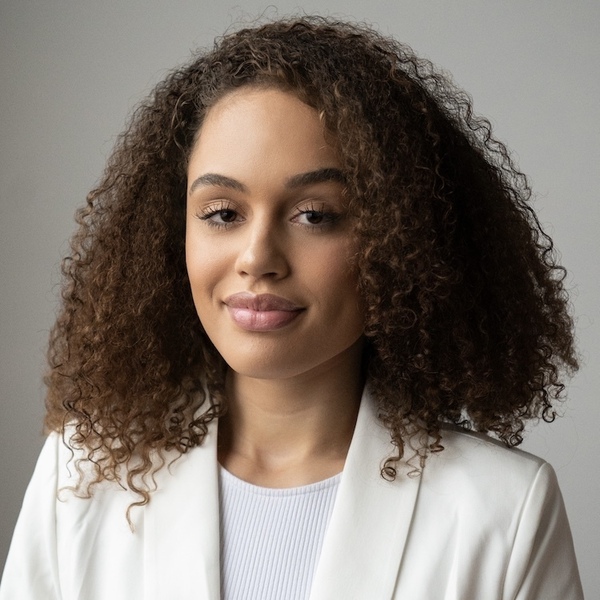
The class: AMST 30109: Sport and Big Data
The professor: Katherine Walden, assistant teaching professor of American studies and a concurrent faculty member in the Gender Studies Program and Department of Computer Science and Engineering. She also is affiliated with the Lucy Family Institute for Data and Society, the Navari Family Center for Digital Scholarship, and the Notre Dame Technology Ethics Center.
The focus: Sport is one of the most enduringly popular and significant cultural activities in the United States, and data has been a central part of professional sport in the U.S., from Henry Chadwick's invention of the baseball box score in the 1850s to the NFL's use of Wonderlic test scores to evaluate players. The course centers on the cultural significance of sport data by putting it into historical context and tracing its impact on athletes, fans, media, and other stakeholders. It also delves into technology systems that collect and analyze sport data, such as the TrackMan and PITCHf/x systems used in MLB, the NFL's Next Gen Stats partnership, and emerging computer vision and artificial intelligence research methods.
The syllabus: Course modules include Baseball, Sabermetrics & “Moneyball”; Data & Power: Historical, Social, and Cultural Context; Policing Gender (at the Olympics); Race, Power & the National Football League; NCAA Gender Equity Review; and Basketball, Analytics & the Geography of Moving Dots. Assignments include response papers, student-led case studies, hands-on work with data, reflections, and a final project. Familiarity with statistical analysis, data science, or computer science tools and methods is not a prerequisite.
Senior Natalija Marshall, who grew up in Queens, New York, took Sport and Big Data during her sophomore year. Marshall majors in American studies and political science, minors in public service, and plays on the Fighting Irish women's basketball team. Because of the course, Marshall said she’s more aware of systemic power structures, is more intentional when reading research studies, and is comfortable working with data.

Why did you take Sport and Big Data? What piqued your interest?
When I was doing a class search online, I saw ‘sport’ and I was like, “OK, that’s cool.” And with our basketball schedule in the fall, there are only so many classes that fit into that time window. I also wasn't too well-versed in data science and data methods, so I thought, “You know what, this will be a good challenge for me.”
How do you describe the course to a friend considering taking it?
It’s a wonderful class about the intersection of sports and data in our society. Professor Walden takes an interdisciplinary approach in terms of teaching about the connection between the two, and looking at the bigger power structures and inequities in both sports and in data, and how the two work in tandem.
What were some of your favorite class topics?
One unit that stood out to me was about racialized data in sports and how that affects the way the public and fans perceive athletes of color — especially in the NFL, like in the combine. We learned about comparisons between the way the data is collected in the combine and the racialized way that data about Black people’s bodies historically has been collected in the United States, especially connecting back to slavery. That was a big theme. And race norming — looking at data with regard to cognitive scores for Black players in the NFL — so that they're artificially at a lower baseline than white players. That was a big one.
Another interesting module was about policing gender and how we treat male athletes versus female athletes in sports science and nutrition. There isn't necessarily equity in terms of how nutritionists and dietitians view female bodies and male bodies in terms of what it means to be strong and ready for your sport. That was powerful to me, as well.
How is the course structured?
Professor Walden is intentional with how she structures the modules and the discussions so that we really looked at the bigger power structures and inequities that come from them, especially as they pertain to race and gender. Those were two really big umbrellas of conversation. The class was interactive and discussion-based, which I really liked. And there were a lot of small group activities and discussion boards with assignments, so you could see what your classmates were thinking and how they were reacting to the topics.

The final project was our topic of choice. The guidelines were open, which was a bit overwhelming when I read the syllabus the first day, but as I learned more about the topics, I saw what my real interests were. My project was an end-of-the-year glossary, almost an encyclopedia of everything that I learned. My intention was that Professor Walden could share links or videos with students, or if there were things people wanted to refer back to for classes. It helped her and me to keep track of all of the work that we went through.
Did you have a background in data science before taking Sport and Big Data?
I didn't know anything about data (going in) and I did great. It was awesome. It was so fun. I highly recommend it. I learned to use R (a language for statistical computing and graphics). It was cool to try something new.
What are some important takeaways?
Since I took Sport and Big Data, and being a Division I athlete, I'm a lot more intentional when I see studies, or surveys, or data, especially if there are inequities present — whether that’s gender, or race, or socioeconomic differences in people. I take a finer tooth comb when I look at data, especially in sports. And I really didn't think about that before.
As a political science major, I loved it. I think I want to work in policy, or even in sports policy considering my background in athletics. I really want to work in that space, and that includes using data and understanding the structures that Professor Walden was adamant we talk about.
What else would you like people to know about the class and your experience in it?
Who Professor Walden is as a person. Although we only met twice a week for 15 weeks, I felt really comfortable in her class, academically and who I was as a person. She was open in discussions about accepting all students of all sexualities, races, and genders. I appreciated that her class was an open space and a safe space for everybody, regardless of identity. I think that made everybody want to come to class more prepared and even more excited to learn. She’s the best professor I've had at Notre Dame in the sense of creating a safe space, so that was really, really powerful.
This Q&A was edited for clarity and brevity.
Originally published by at al.nd.edu on December 18, 2023.